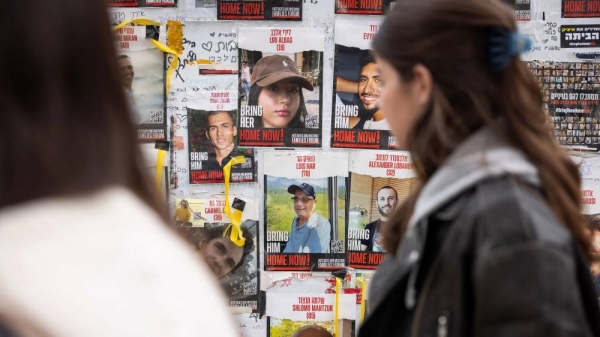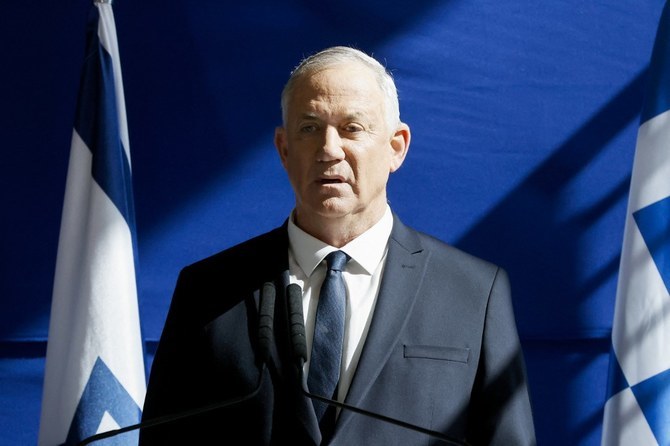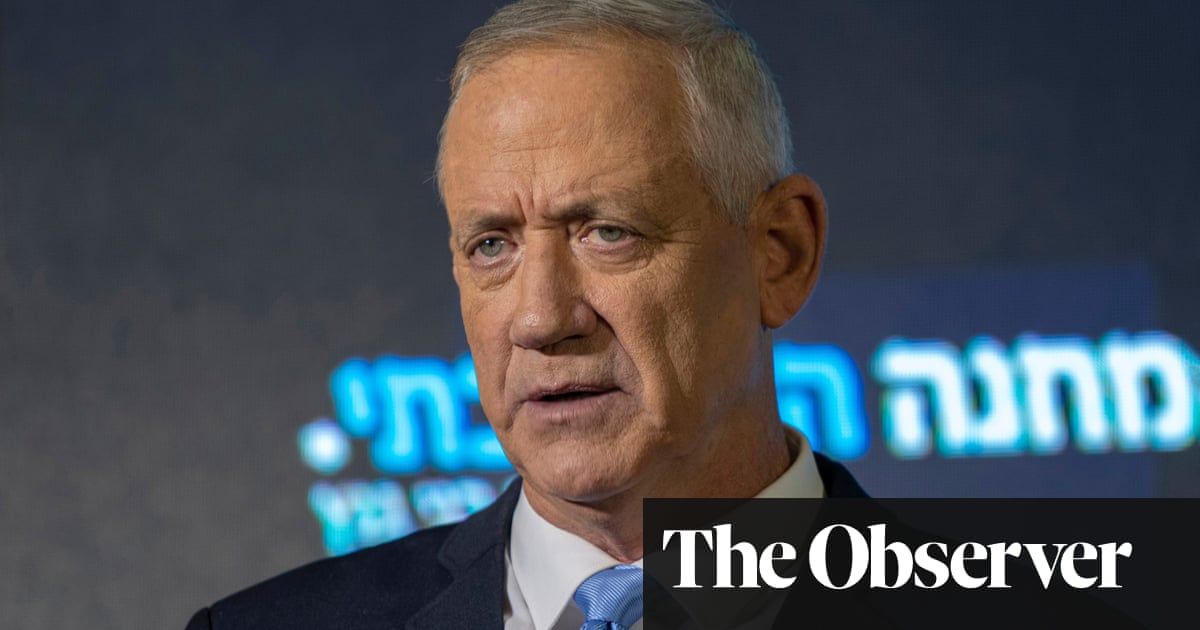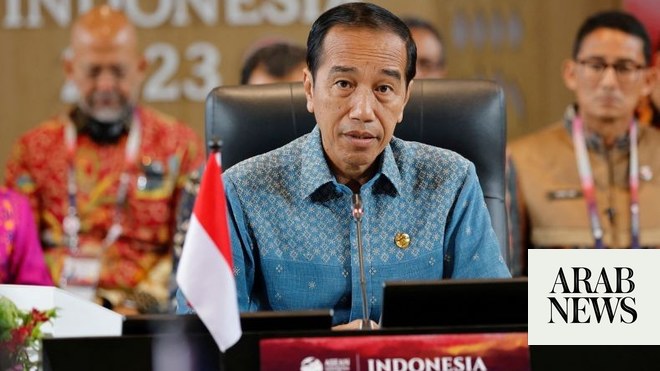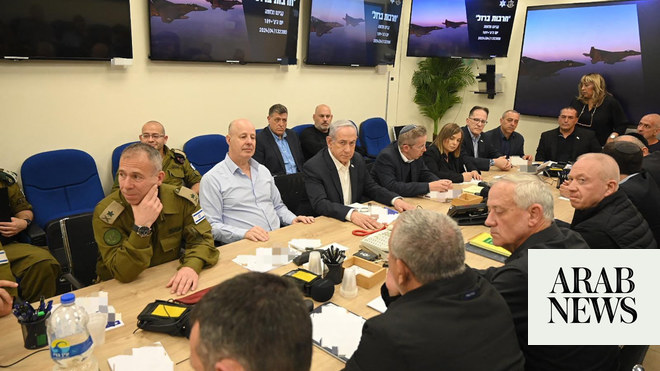
Hamas eader Izzat Al-Rishq jas accused Netanyahu earlier Sunday of “trying to buy more time to continue the aggression"
RAFAH, Palestinian Territories: Israeli Prime Minister Benjamin Netanyahu said Sunday he “strongly opposes” ending the war in Gaza, ahead of his war cabinet convening amid intense diplomacy to forge a truce and hostage release deal.
Meanwhile deadly fighting rocked the Gaza Strip and Hamas militants fired a salvo of rockets at Israel’s commercial hub Tel Aviv for the first time in months, sending people scrambling for shelter.
Netanyahu has long rejected Hamas’s demand in negotiations for a permanent end to the fighting, which was triggered by the Palestinian militant group’s October 7 attack and has left vast areas of besieged Gaza in ruins.
A senior Israeli official, speaking on condition of anonymity, had earlier told AFP that “the war cabinet is expected to meet... tonight at 9 p.m. (1800 GMT) to discuss a hostage release deal.”
A statement issued by Netanyahu’s office before the meeting said Hamas chief in Gaza Yahya “Sinwar continues to demand the end of the war, the withdrawal of the IDF (army) from the Gaza Strip and leaving Hamas in place, so that it will be able to carry out the atrocities of October 7 again and again,” referring to the attack that triggered the war.
“Prime Minister Netanyahu strongly opposes this,” the statement said.
A member of Hamas’s political leadership, Izzat Al-Rishq, accused Netanyahu earlier Sunday of “trying to buy more time to continue the aggression.”
In Brussels, the European Union’s foreign policy chief Josep Borrell told journalists before meeting Palestinian premier Mohammed Mustafa that a strong Palestinian Authority (PA) was in Israel’s interest.
EU members Ireland and Spain, and also Norway, have said they will recognize the State of Palestine from Tuesday, drawing furious Israeli condemnation.
“A functional Palestinian Authority is in Israel’s interest too, because in order to make peace, we need a strong Palestinian Authority, not a weaker one,” Borrell said.
Mustafa, whose government is based in the occupied West Bank, said the “first priority” was to support people in Gaza, especially through a ceasefire, and then “rebuilding the institutions of the Palestinian Authority” there after Hamas seized it from the PA in 2007.
US President Joe Biden has pushed for renewed international efforts to halt the war, now in its eighth month.
The Israeli official had said Saturday that “there is an intention to renew these talks this week” after negotiations involving US, Qatari and Egyptian mediators stalled in early May.
However, Rishq said Sunday that so far, “we have not received anything from the mediators.”
He insisted on Hamas’s long-standing demand for a permanent cessation of hostilities as “the foundation and the starting point for anything.”
Netanyahu has repeatedly vowed to destroy Hamas following the October 7 attack, but has also faced growing domestic and international criticism.
The attack on southern Israel resulted in the deaths of more than 1,170 people, mostly civilians, according to an AFP tally based on Israeli official figures.
Militants also took 252 hostages, 121 of whom remain in Gaza, including 37 the army says are dead.
Israel’s retaliatory offensive has killed at least 35,984 people in Gaza, mostly civilians, according to the Hamas-run territory’s health ministry.
The military on Sunday announced the death of a soldier in north Gaza, taking to 289 the number of troops killed since Israel began its ground offensive in late October.
As the war ground on, the families of hostages still held by Palestinians militants have piled pressure on Netanyahu to secure a deal to free them.
Washington has also taken a tougher line with its close ally as outrage over the war and US support for Israel has become a major issue for Biden, seeking re-election in a battle against Donald Trump.
With more strikes reported Sunday across Gaza, Israel’s military said that over the past 24 hours it had destroyed “over 50 terror targets.”
Fighting has centered on the far-southern city of Rafah, where Israel launched a ground operation in early May despite widespread opposition over concerns for civilians sheltering there.
Rafah resident Moaz Abu Taha, 29, told AFP of “constant bombardment from land and air, which has destroyed many houses.”
Gaza’s civil defense agency said it had retrieved six bodies after a house was targeted in eastern Rafah.
Hamas’s armed wing said it had targeted Tel Aviv “with a large rocket barrage in response to the Zionist (Israeli) massacres against civilians.”
Israeli military spokesman Rear Admiral Daniel Hagari told a televised briefing that “Hamas terrorists in Gaza fired eight rockets at central Israel from Rafah.”
“Hamas launched these rockets from near two mosques in Rafah,” Hagari said. “Hamas is holding our hostages in Rafah, which is why we have been conducting a precise operation” there.
Analyst Neomi Neumann said the militants were not trying to “cause damage to Israel, but to maintain continuity of fire.”
They “shoot relatively few rockets per barrage from their diminishing arsenal, and choose when to concentrate their efforts,” said Neumann, a visiting fellow at the Washington Institute for Near East Policy think tank.
The UN has warned of looming famine in the besieged territory, where most hospitals are no longer functioning.
Amid the bloodiest ever Gaza war, Israel has faced growing global outcry over the surging civilian death toll, and landmark moves last week at two international courts.
Last Monday, the prosecutor at the International Criminal Court announced he was seeking arrest warrants for Netanyahu and his defense minister as well as for three top Hamas figures.
And on Friday, the International Court of Justice ordered Israel to halt its Rafah offensive or any other operation there that could bring about “the physical destruction” of the Palestinians.





